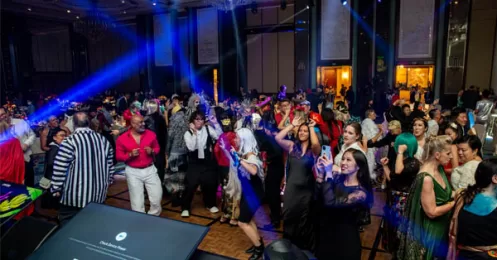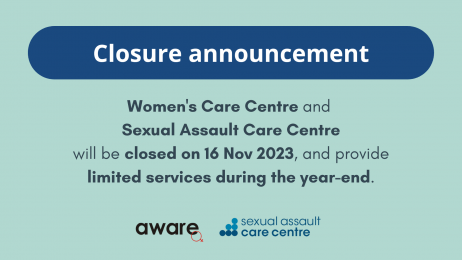On November 25th, AWARE held a full-day event at its centre to mark the International Day for the Elimination of Violence Against Women (IDEVAW). The event was packed with thought-provoking discussions, personal testimonies, and practical workshops, leaving participants empowered and inspired to take action against violence.
The event began with an opening statement by Lim Xiu Xuan, the Deputy Director of CARE. Her speech touched on the individual versus systemic lens taken when discussing gender-based violence. She also encouraged the audience to reflect on the various parts of our culture that perpetuated violence.
Women-led Panel Discussion Challenges Assumptions
The morning then continue with an informative panel discussion titled “In Plain Sight,” moderated by Laavanya Kathiravelu, an Assistant Professor at NTU and AWARE Board Member. Joining her were:
- Cindy Ng-Tay, a social worker, and a contributor to the anthology Assault on the Body. She represented the church community, especially the children and youth ministry.
- Shila Naidu, a psychotherapist, centre manager, and counsellor at Greenhouse Community Services.
- Devika Panicker, a financial services consultant, actor and TEDxSpeaker. She is also a staunch advocate for sexual assault survivors.
The panel talked about the invisibility of sexual assault as well as the factors that keep it hidden in various settings, such as families, communities, and workplaces.
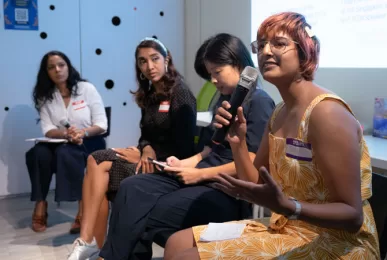
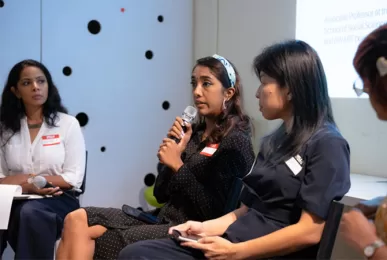
The panellists also challenged the common assumption that sexual violence is solely a heterosexual issue, highlighting the impact of inequality and power imbalances across all forms of violence. They discussed the crucial need for safe spaces, destigmatising sex and violence, and challenging harmful myths and narratives.
The panellists recognised that focus can at times be placed on protecting the peace rather than prioritising survivors’ safety. However, this approach can lead to victim blaming instead of being an ally and advocate for the survivor. On how to be a good ally, the panel agreed that “we need to sit and listen to [the survivor].”
“People tend to naturally try to make sense of things that they do not understand — we do not need to understand.”
Men Join the Movement: The Brotherhood’s Perspective
Following the panel discussion, Ben and Firdaus, representatives from The Brotherhood, a men’s support group by Thye Hua Kwan Family Services, which is focused on ending family violence, shared their perspectives and experiences.
The Brotherhood engages men who have caused hurt as partners to be part of the solution to ending family violence and building a community to support the community.
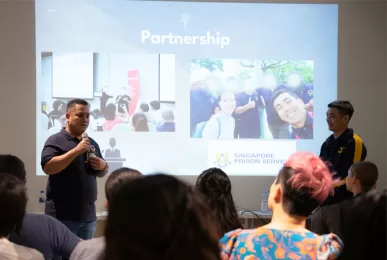
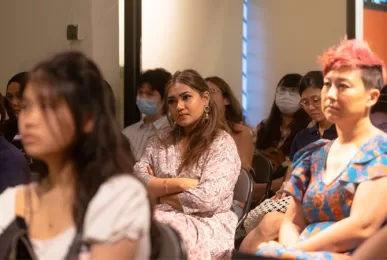
They emphasised the vital role of men in breaking the cycle of violence and creating safe spaces for open dialogue and support.
Workshops
The afternoon saw two engaging workshops: one on empathetic listening and another on active bystander intervention. Participants actively engaged in discussions and role-playing scenarios, gaining valuable skills and knowledge to combat violence.
Chie Van Slobbe, a senior consultant and facilitator at Catalyse, led the first workshop, “How to Be an Active Bystander”. Chie shared with the participants how smart and sensitive bystander intervention can change a violent situation into a close call.
Rayann Condy, an experienced trainer and facilitator who oversaw AWARE’s Aim for Zero initiative, led the second workshop as the day’s final event. The workshop talked about how empathy and listening are critical skills needed by first responders to sexual assault and used group discussions and role-play activities to help participants practice in a safe and accountable environment.
Empowering Dialogue and Collaboration
Throughout the entire day, participants had the opportunity to learn about IDEVAW’s significance, engage in meaningful conversations, and gain diverse perspectives on combating violence.
The event fostered a sense of community and collaboration, inspiring individuals and organisations to work together towards a violence-free future.
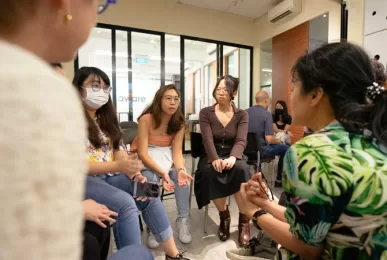
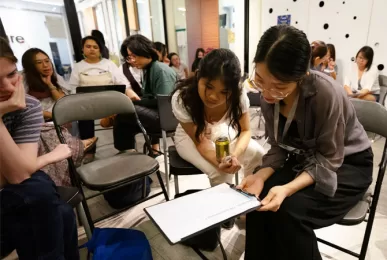
AWARE remains committed to continuing the conversation, taking concrete steps to address violence in our communities, and providing vital support services for survivors and advocates for systemic change.
We encourage everyone to learn more about IDEVAW and join the movement to create a world free from violence.
This recap is based on notes taken during the event and may not capture all points discussed.




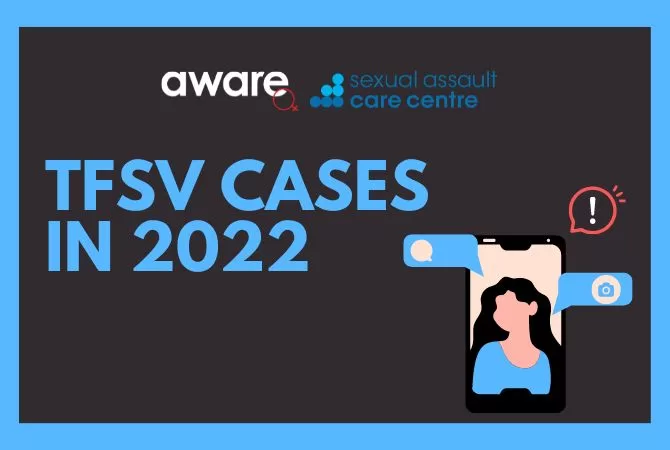
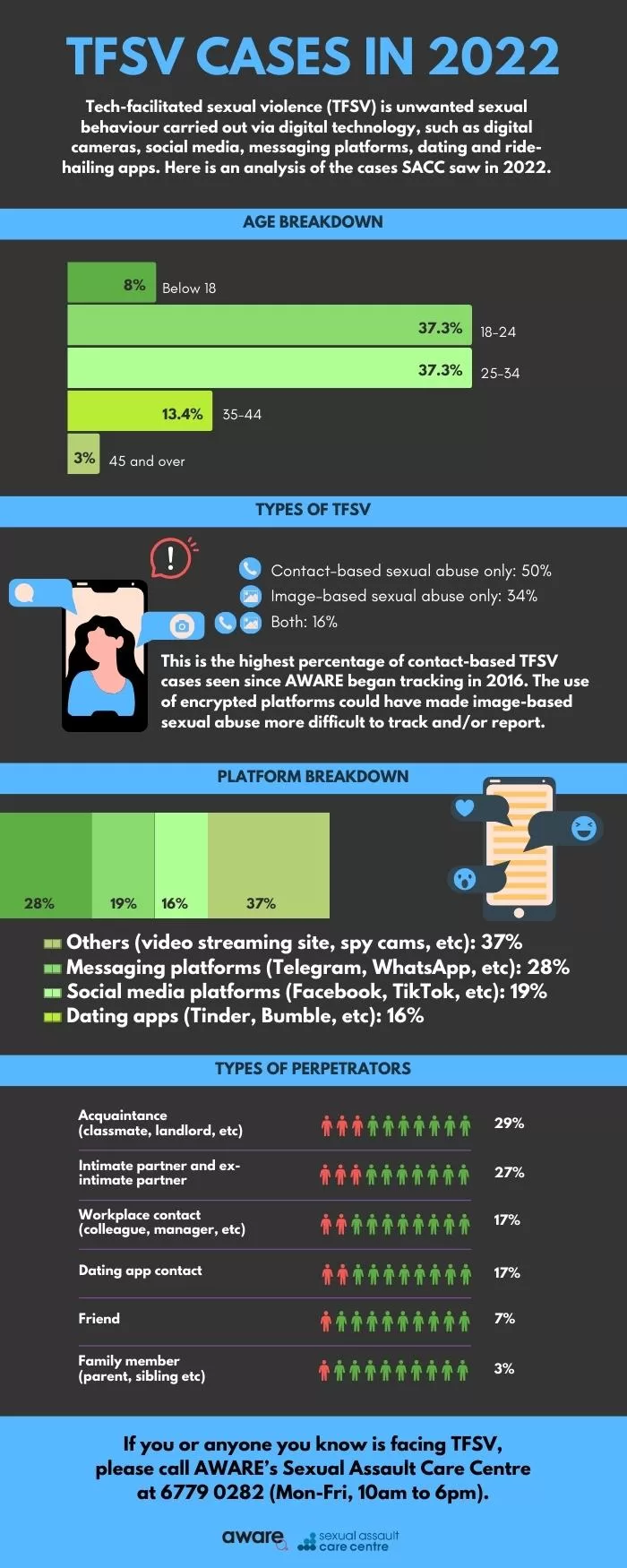
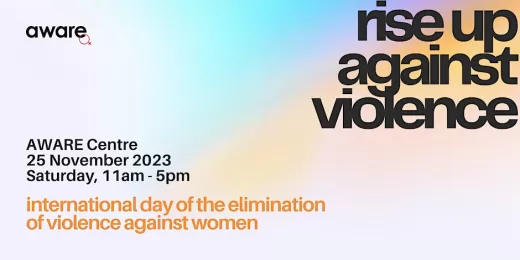
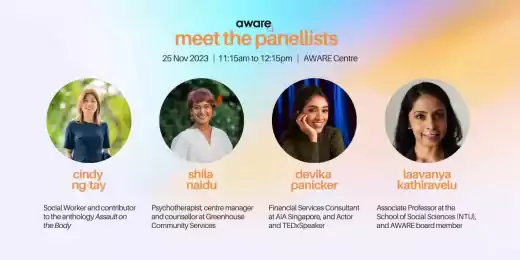
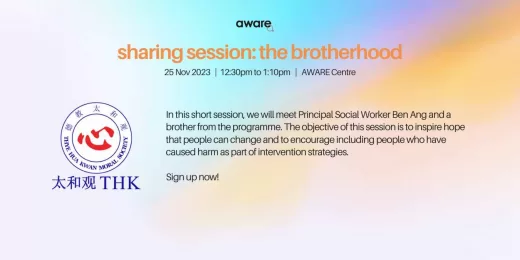
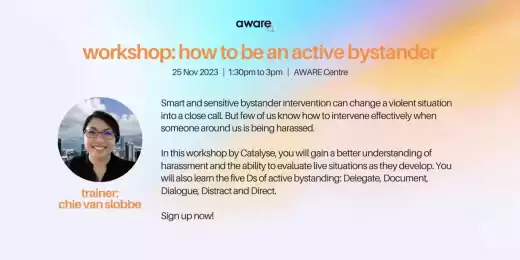
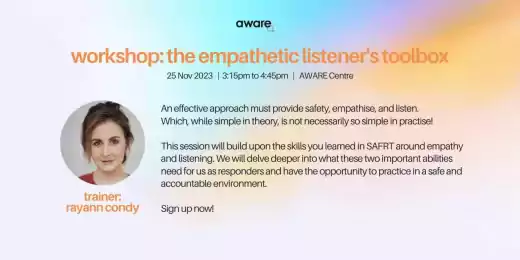


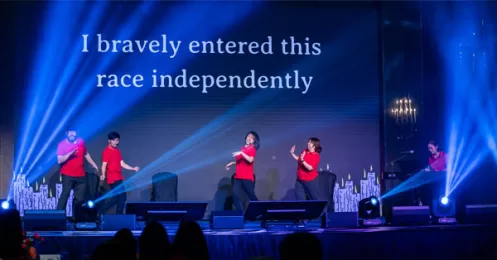
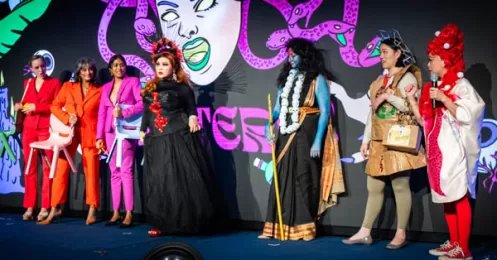 Nominees for best dressed
Nominees for best dressed


